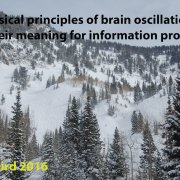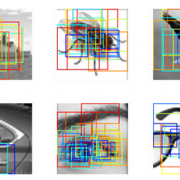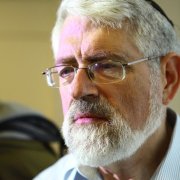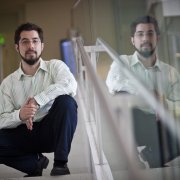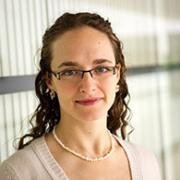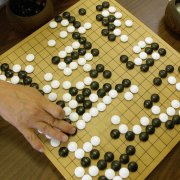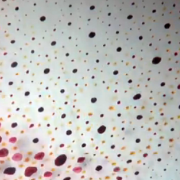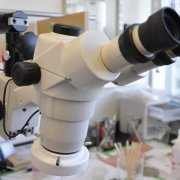February 29, 2016 - 9:45 am
Organizers: Costas Anastassiou, Gabriel Kreiman and Stephanie Jones
Oscillatory activities such as theta (~4-8 Hz), alpha (~7-14Hz), beta (~12-30 Hz) or gamma (~30-80 Hz) have been hypothesized to coordinate neural functioning within and across brain areas. Flexible cooperation among local...
Oscillatory activities such as theta (~4-8 Hz), alpha (~7-14Hz), beta (~12-30 Hz) or gamma (~30-80 Hz) have been hypothesized to coordinate neural functioning within and across brain areas. Flexible cooperation among local...
February 23, 2016 - 12:45 am
"Google and Korean Baduk (Chinese Go) Association (KBA) today held the “Google Deepmind Challenge Match Press Briefing” to announce the details on the upcoming Go games between Sedol Lee (9-dan) and AlphaGo, a computer AI by Google DeepMind.
Vice Secretary of KBA, Cheemun Park, and Sedol Lee attended the briefing, and Demis Hassabis, the CEO of Google DeepMind joined on live video to announce the match location, time, rules, and broadcasting...
February 18, 2016 - 6:15 am
By Jeremy Hsu
Posted 15 Feb 2016
A recent IEEE article covers Prof. Shimon Ullman's research on the digital baby project.
Excerpt:
"Can artificial intelligence evolve as human baby does, learning about the world by seeing and interacting with its surroundings? That’s one of the questions driving a huge cognitive psychology experiment that has revealed crucial differences in how humans and computers see images.
The study has tested the limits of ...
February 17, 2016 - 4:00 pm
MIT Building 46, Room 3189
Haim Sompolinsky
Abstract: What are the computational principles underlying the transformation of sensory representations along brain sensory hierarchies? I will discuss recent theoretical results addressing: (1) the role of sparsity, expansion and noise in signal propagation in deep networks; (2) the potential...
February 13, 2016 - 12:00 pm
A Conversation With Ed Boyden
Edge.org
February 12, 2016
Excerpt:
"How can we truly understand how the brain is computing the mind? Over the last 100 years, neuroscience has made a lot of progress. We have learned that there are neurons in the brain, we have learned a lot about psychology, but connecting those two worlds, understanding how these computational circuits in the brain in coordinated fashion are generating decisions and thoughts and...
February 3, 2016 - 4:00 pm
Rebecca Saxe
In healthy human adults, cortical representations of the visual world are spatially and functionally organized at multiple scales. High level, behaviourally relevant categories (e.g. faces, scenes) elicit systematic responses across wide regions of cortex. While the adult state has been described...
January 28, 2016 - 6:00 pm
Mark Zuckerberg tried to steal DeepMind’s Go-playing computer thunder. It didn’t really work out the way he had intended
by HAL 90210, The Guardian | Technology Spamfilter, January 28, 2016
Excerpt:
"On Wednesday morning, Zuckerberg posted a link on Facebook to a scientific paper from a group of AI researchers at his company." ...
"The academic paper confirmed that the Facebook research team had successfully built a Go program that took third...
January 28, 2016 - 8:15 am
We are saddened by the passing of Prof. Marvin Minsky, this past Sunday, January 24, 2016. Our thoughts are with his family and friends as this time.
In the very beginning of the development of our Center, during the MIT Intelligence Initiative days, we were very fortunate to have Prof. Minsky agree to participate in the MIT 150 Brains, Minds and Machines Symposium's “Golden Age” panel discussion, moderated by Steven Pinker (Harvard), May 2011...
January 27, 2016 - 4:00 pm
Nancy Kanwisher
Thrust 4 Projects
Speakers: Prof. Nancy Kanwisher - Introduction; Matt Peterson - "Real World Eye Movements for Acquiring Social Information"; Maryam Vaziri Pashkam - "Understanding action reading and social vision from simple interactions"; Leyla Isik - "Studying social interactions with...
Speakers: Prof. Nancy Kanwisher - Introduction; Matt Peterson - "Real World Eye Movements for Acquiring Social Information"; Maryam Vaziri Pashkam - "Understanding action reading and social vision from simple interactions"; Leyla Isik - "Studying social interactions with...
January 27, 2016 - 3:00 pm
by John Markoff
January 27, 2016
Excerpt: "Artificial intelligence researchers are closing in on a new benchmark for comparing the human mind and machine. On Wednesday, DeepMind, a research organization that operates under the umbrella of Alphabet, reported that a program combining two separate algorithms had soundly defeated a high-ranking professional Go player in a series of five matches.
The result, which appeared in the Jan. 27 edition of...
January 26, 2016 - 3:30 pm
Thank you to Emily Mackevicius (Fee Lab) for organizing the wonderful Tutorial Series in Computational Topics for BCS! this tutorial series was hosted at MIT over the month of January 2016 as part of the MIT Independent Activities Period (IAP.)
Videos of the tutorials are posted to the CBMM Video Archive: https://cbmm.mit.edu/videos?field_video_grouping_tid[]=781
Additional information, including links to the tuttorial's wiki, are posted on the...
January 25, 2016 - 2:00 pm
For Credit MIT IAP 2016 Course
Prereq: None
Units: 1-0-1 [P/D/F]
Course will meet the week of Jan. 25 - 29, 2015
Begins Jan 25. Lectures: MTWRF
Time: 2pm-5pm
Location: MIT Bldg 46, Room 46-1015
Provides instruction and dialogue on practical ethical issues relating to the responsible conduct of...
Prereq: None
Units: 1-0-1 [P/D/F]
Course will meet the week of Jan. 25 - 29, 2015
Begins Jan 25. Lectures: MTWRF
Time: 2pm-5pm
Location: MIT Bldg 46, Room 46-1015
Provides instruction and dialogue on practical ethical issues relating to the responsible conduct of...
January 15, 2016 - 10:00 am
Tomaso Poggio
Neuroscience has made huge advances in the last few years. We now know more about how the brain works than we have ever known before. Likewise, Computer Science and Artificial Intelligence have made enormous steps forward and have become part of our every-day lives. The interaction between...
January 13, 2016 - 4:00 pm
MIT Bldg. 46 Room TBA
Tomaso Poggio, Qianli Liao, Georgios Evangelopoulos, and Tejas Kulkarni.
Thrust 5: Theories of Intelligence
The thrust aims to provide theoretical frameworks and common mathematical tools for understanding visual intelligence, for guiding computer implementations, and for informing and interpreting experiments in the Center.
Our working hypothesis for vision suggests...
The thrust aims to provide theoretical frameworks and common mathematical tools for understanding visual intelligence, for guiding computer implementations, and for informing and interpreting experiments in the Center.
Our working hypothesis for vision suggests...
January 13, 2016 - 3:00 pm
Discussing the limitations of current object detection tasks, evaluations and datasets and trying to suggest alternatives aligned with the goals of CBMM. The aim is to propose and formulate frameworks through CBMM for datasets, tasks, metrics, evaluation strategies etc.

